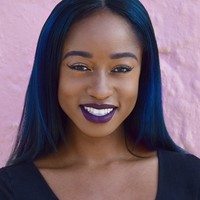By Josephine Reid
The second wave of COVID-19 has been filled with uncertainty and unpredictability.However, we’ve had plenty of opportunities to avoid preventable downfalls. According to vaccine health officials pointing to emerging research, the two-dose mRNA vaccines arehighly effective at preventing infection, illness, and hospitalization, even for the now-prevalentDelta variant.
Despite the apparent importance of being fully vaccinated, about 15 million people in the United States have failed to get their second shot and receive full protection, according to the Centers for Disease Control and Prevention (CDC).
In a recent town hallhosted by the Black Coalition Against COVID-19 (BCAC), guestspeaker Dr. Simira L. Brown said, “The level of protection you’re able to get to is significantly different with one shot versus two, and that’s exactly the reason why you need two shots if you’re getting the Pfizer, which is the vaccine that’s approved down to 12 [years old].”She added, “So if you’re going to get into that over 90 percentprotectionwhich is incredibly good and protects against every single variant that we have seen here in the US, you have to get both to be able to get to that level.”
Public health and vaccine experts have long emphasized the importance of following the course of full vaccination. A newly published study by Stanford Medicine quantifies how important a second dose of an mRNA vaccine is when it comes to fighting COVID-19.
Experts also say that by getting a second dose of the mRNA vaccine, your immune cells will remember their previous encounter with that very same vaccine.
The second shot is recommended three weeks after the first Pfizer-BioNTech shot or four weeks after the first Moderna shot. Second doses are considered missed if more than 42 days have passed since the initial shot.
“Getting you to come in and get tested is one step; getting you to get vaccinated is another. Getting you to get your second dose has become its own barrier,” said Nic Lee of the Rafiki Coalition for Health & Wellness.
A misconceptionpersists that one dose provides ample protection from the virus. Additionally, there’s a fear that the second dose will lead to side effects thatfor some peopleare reportedly more severe than after the first dose. Challenges of getting an appointment and finding the time to get a second dose are among the other reasons people have for not getting fully vaccinated to fight COVID-19.
Dr. Nerissa Price of WakeMed Health in Raleigh, North Carolina,stresses thatgetting two doses of a COVID-19 vaccine will equip Black Americans with good protection from the virus. “It’s really not until after that second shot that you get full protection,” Dr. Price said.“And full protection, we need to clarify as well, does not mean 100 percent protection,” she added. “It still means that people need to be careful in certain settings where there’s a high number of unvaccinated individuals. I have the simple math. The first shot gets you half the way. The second shot gets you all the way. Even still, we need to be mindful of the new variants and the new information that gets released every day.”
Regardless of whether you’re busy or want to avoid feeling under the weather, experts say getting fully vaccinated is vital, especially with the highly transmissible Delta variantcontinuingto spread throughout the country. Banding together with your doctor and doing your part by becoming fully vaccinated can protect your life, the lives of your loved ones, and the lives of those in our Black communities.
For more information about vaccination sites in your area, please go to https://www.vaccines.gov.
Please click the following link for more information about the Delta Variant.
Please visit the “We Can Do This”website to access all resources and toolkits.
Josephine Reid is a member of the Public Relations Team at Creative Marketing Resources, a strategic marketing agency in Milwaukee, Wisconsin, and a partner of the BCAC.










